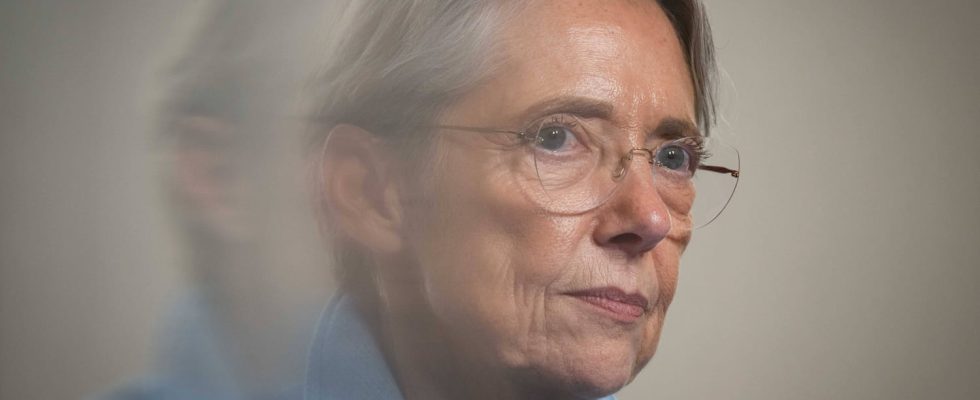Elisabeth Borne is in a complicated political situation: by imposing 49.3 on the pension reform, she demonstrated that she could not count on a compromise in the Assembly. On TF1, she must convince.
This very long day of Thursday March 16 will remain long in the memory of Elisabeth Borne: this morning, the hope of obtaining a relative majority to adopt the pension reform by a vote was important. But over the course of the day, the account and the certainties ended up dwindling. After two meetings with Emmanuel Macron, the Prime Minister finally agreed to engage the responsibility of her government, by imposing on parliamentarians the use of Article 49.3 of the Constitution.
Elisabeth Borne is therefore on TF1 this evening, at 8 p.m., for a pedagogical exercise. The Prime Minister is convinced that she can justify the use of this exceptional procedure, also convinced that the motions of censure tabled or to come will not be voted on.
But the surprises and reversals of the day could well, also, instill in the mind of Elisabeth Borne an idea which will undoubtedly make its way: the current times are not very adaptable to certainties. Moreover, several LR deputies have already said they are ready to vote for a motion of censure. The hypothesis that it is adopted is frankly not to be excluded, as the elected opposition members have shown an anger rarely seen in the hemicycle over the past 40 years. Which would mean the overthrow of his government and the end of his mission at Matignon.
The polls follow one another: French opinion is fiercely hostile to the use of 49.3. This is also still the case, the pension reform is also poorly perceived by a majority of French people. It is therefore written: the social mobilizations will be reinvigorated, the protesters will cry out for a coup, for the disconnection between the executive and public opinion. Elisabeth Borne would probably not have imagined such a scenario for this very long day of Thursday March 16. For lack of imagination, we often delude ourselves.
